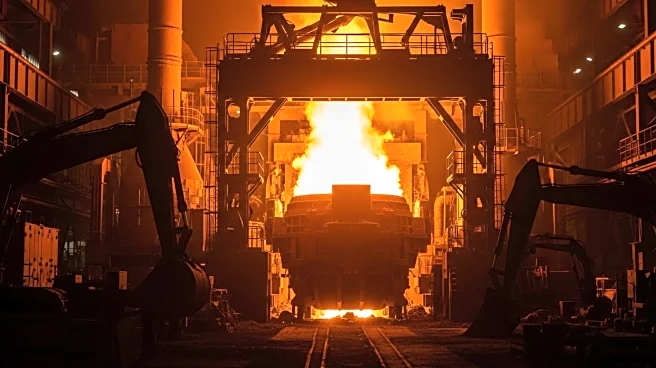What is the story about?
What's Happening?
The U.K. government, led by Prime Minister Keir Starmer, has taken control of Speciality Steels UK, a major steel plant, due to financial insolvency. This move affects nearly 1,500 workers in South Yorkshire, whose jobs are now uncertain. The plant, part of Liberty Steel, faced financial difficulties following the collapse of its main lender, Greensill Capital. The government has appointed a liquidator and special managers to oversee operations while seeking a buyer. This nationalization is part of a broader strategy to secure domestic steel production, deemed critical for national security, especially in light of recent U.S. tariffs on U.K. steel imports.
Why It's Important?
The nationalization underscores the challenges facing the U.K. steel industry, which is grappling with high energy costs, global competition, and the need to decarbonize. The move highlights the strategic importance of steel production for national security, particularly in military applications. The decision also reflects broader economic and geopolitical tensions, including the impact of U.S. tariffs and the need for the U.K. to maintain a competitive edge in the global market. The outcome of this intervention could influence future government policies on industrial strategy and international trade relations.
What's Next?
The government will continue to manage the plant while seeking a viable buyer. The situation may lead to further discussions on industrial policy and the role of government in supporting key industries. The outcome could also affect U.K.-U.S. trade relations, particularly if tensions over tariffs persist. The steel industry will need to adapt to changing market conditions and regulatory requirements, including environmental standards.
Beyond the Headlines
The nationalization raises questions about the long-term sustainability of the U.K. steel industry and the role of government intervention in market economies. It also highlights the ethical considerations of balancing national security with economic competitiveness and environmental responsibility. The situation may prompt broader discussions on the future of manufacturing and industrial policy in the U.K.















